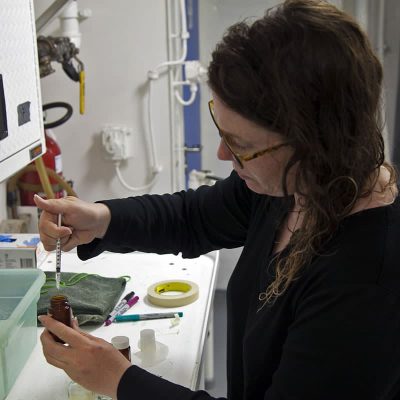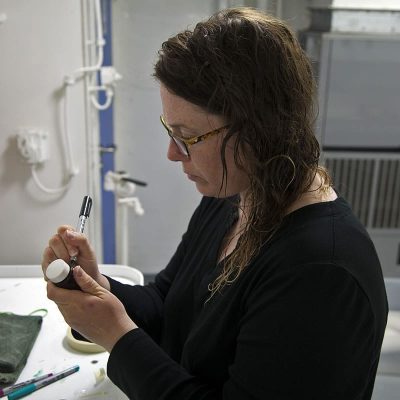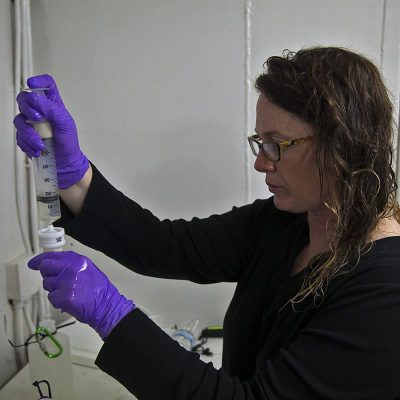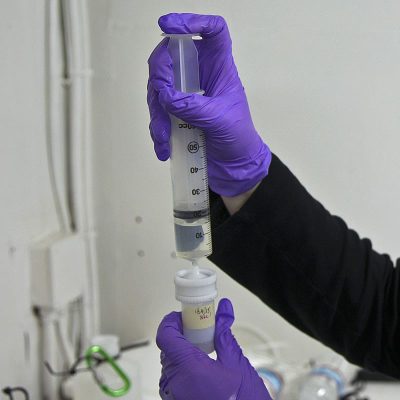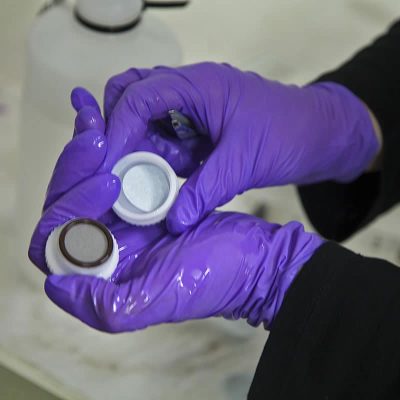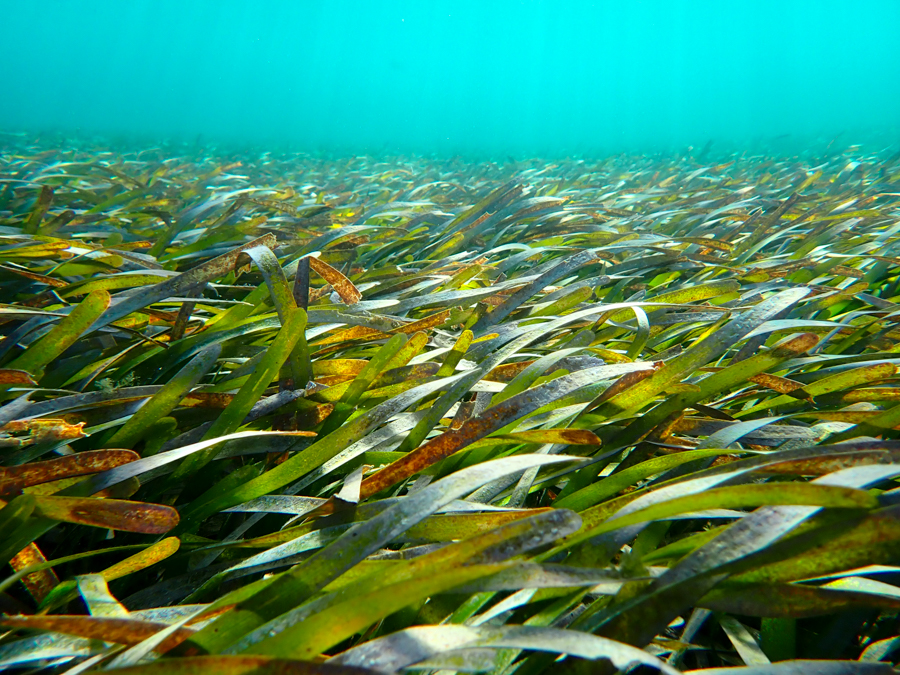Expedition Log: Palau – Day 15
Corals reefs capture our imagination with their extreme beauty and diversity, and so when we think about a reef, it usually brings to mind colorful imagery of teeming fish, strange forms of corals, and the tangles of algae and other invertebrates that all cohabit this highly complex ecosystem. But there are invisible processes that help make reefs what they are, and the chemical reef that we don’t see is just as important to studying reef health as the biology we do on the Global Reef Expedition.
We know that certain chemical properties of the seawater can affect the health and function of reef communities, and so we take water samples underwater that we can analyze when we get back to our laboratory.
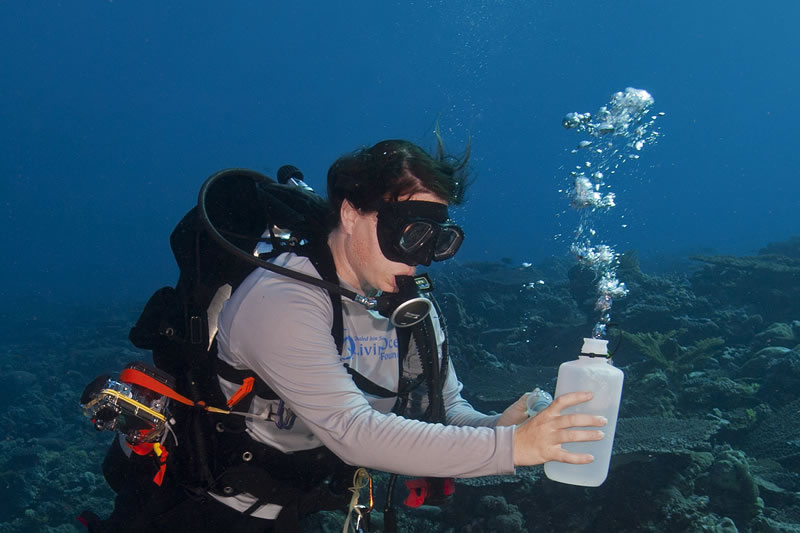
A science diver takes seawater samples underwater to be analyzed back in the laboratory aboard the Golden Shadow.
A 500mL bottle of seawater is so dynamic that if the samples aren’t filtered, poisoned, and sealed immediately, the chemical composition of the sample would be completely different than what was collected. This processing stops biological activity and any chemical exchange with the air, to preserve the samples as they were collected.
Seawater Chemistry in Progress:
The science team aboard the Golden Shadow filters, poisons, and seals the seawater samples immediately to preserve the samples as they were originally collected.
In these water samples, we analyze nutrient concentrations, total inorganic carbon, and alkalinity. Most reefs are low-nutrient environments, and land-based sources of pollution can enter the water around a reef, causing an increase in nutrients, which can lead to an unwanted increase in plant growth on the reef or immune stress in corals. Measuring nutrients is one way of looking at how healthy the water is for a reef. We also monitor and record any changes to the carbonate chemistry of reef water, which could affect the skeletal structure of corals and shelled organisms.
All of the physical, chemical, and biological data we collect on the Global Reef Expedition is added to the one of the largest datasets about the current status of coral reef health in the world.
Photos by Ken Marks.


